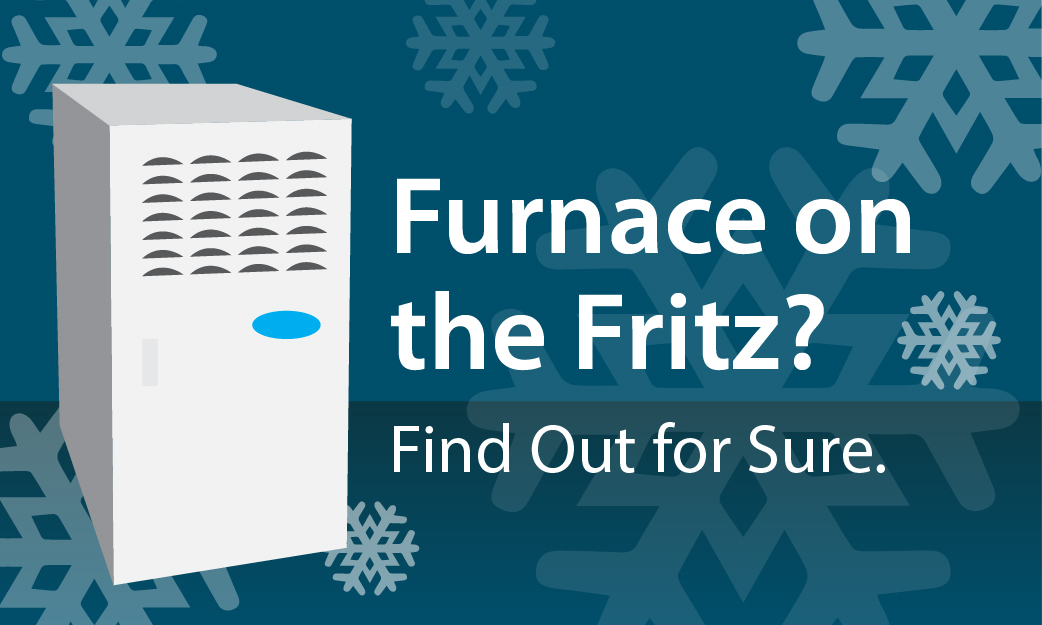
Your thermostat might be set to the correct temperature, but if its battery is dead or dying, then your furnace isn’t getting the message. If your thermostat uses batteries, look for a “Low Battery” signal and replace them if necessary. If it is wired to your home’s electricity, the issue will probably require a professional to diagnose.
It’s important to make sure that the furnace itself has power, as well. Most furnaces have an electrical “On/Auto” switch that controls the fan. Your switch is probably set to “Auto.” Try turning it to “On”—if the furnace fan does not turn on, then your furnace needs electrical power. Call a residential heating technician to examine the furnace.
The filters of your furnace should be replaced every 4 – 6 weeks during the winter heating season. If you haven’t changed your filters recently, they could be blocking air from entering your furnace, or keeping heated air from making it out of the furnace and into your home. Check your furnace’s filters and replace them if necessary. These are usually located along the return duct or above the furnace’s blower area. If you can’t locate the filters on your furnace, a professional can find them for you.
If your furnace isn’t functioning at all, head to the breaker panel to make sure it’s getting power. Open up your home’s panel and locate the switch for the furnace. If the switch isn’t fully flipped to “On,” try flipping it all the way off, then back on again.
If you have a gas furnace, there should be a lit pilot light located by the bottom of the furnace that ignites the burners. Check to make sure the flame of the pilot light is still burning; if it’s not, a professional should relight it for you. Handling open flames around gas can be dangerous, and if you’re not experienced with such repairs, it’s better left to a trained technician.
Instead of a pilot light, newer furnaces use electronic ignition that is usually located directly inside the furnace’s burner door. If this is the case with your furnace, try flipping the switch of the electronic igniter to “Off,” waiting a few minutes for the residual gas to dissipate, then flipping it back to “On.” Waiting for the gas to disperse is crucial for your safety, and if you’re not comfortable reigniting the furnace yourself, call a professional to check it out.
Debris such as birds’ nests or even deteriorated flue liner itself can cause blockages. These blockages can be dangerous—if the flue is blocked, that means it is unable to push harmful gases from your furnace out of your home. Instead, these gases are forced back inside. If you have an oil or gas furnace with a blocked flue, carbon monoxide – a colorless, odorless, and lethal gas – could potentially be circulated throughout your home. Check your furnace’s flue to make sure that the airway is clear. If you are unable to clear the flue yourself, a professional can remove any debris.
Modern furnaces have a small window where a light shines out. A blinking green light means that the furnace’s blower motor is on, which suggests it’s functioning normally. If you see anything other than a blinking green light, note the color and pattern of the light’s activity, which will help a residential heating professional diagnose the issue as quickly as possible.
If so, then the gas line to your house is functioning, and the issue with your gas furnace lies elsewhere. If not, then you’ve found your problem: The furnace has no supply of gas to run properly.
If you’ve answered yes to all of these questions and your furnace still isn’t working properly, it’s time to call a professional to diagnose the issue. If you answered no to one or more of them along the way, you now have a better idea of why your furnace is malfunctioning, and you’re better prepared to inform a heating professional about the possible problems.
The professional residential heating technicians at IT Landes can diagnose your furnace issues and solve your winter emergency quickly and efficiently. We provide residential heating and fuel oil services and installations to homes in Harleysville, Lansdale, Skippack, Souderton, Telford, and surrounding Pennsylvania areas. Call us today at 215-256-4221 or request an appointment online.